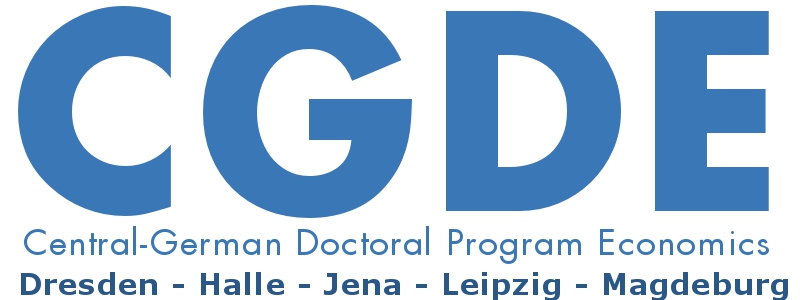Dynamic Macroeconomics with heterogeneous Agents: Solution Methods and Applications
Lecturer: Professor Dr Winfried Koeniger (Swiss Institute for Empirical Economic Research, University of St. Gallen)
Date: October 30 – November 2, 2017
Venue: Halle Institute for Economic Research (IWH) – Member of the Leibniz Association, Kleine Maerkerstrasse 8, 06108 Halle (Saale), Germany, conference room (ground floor)
Registration: until September 15, 2017 via e-mail: annett.hartung@iwh-halle.de
Announcement see pdf (literature list included)
The course is designed for at most 25 participants.
Course outline
Many interesting economic problems in macroeconomics have to be analysed under the empirically plausible assumption that markets are incomplete so that agents are heterogeneous. Analysing these problems with dynamic stochastic equilibrium models requires numerical approximation. This course introduces PhD students to methods which allow such numerical approximation. These methods are then applied to solve and simulate workhorse models for economies with incomplete markets. Participants will also learn about stylized empirical facts which are then interpreted and analysed with formal models.
Schedule
30 October: 9:00-12:30 and 14:00-17:30
31 October: 9:00-12:30 and 14:00-17:30
1 November: 9:00-12:30 and 14:00-17:30
2 November: 9:00-12:30 and 14:00-17:30
The course deals with the following topics:
1. dynamic programming
– introduction
– some solution methods
2. application to models with exogenously incomplete markets
– stylised facts and puzzles
– the life-cycle model with exogenous market incompleteness
– liquidity constraints
– precautionary savings
– computation of equilibrium
– joint analysis of durable and non-durable consumption
– the role of non-separable preferences
– adjustment costs
– durables as collateral
– debt and bankruptcy
3. models with endogenous market incompleteness
– limited commitment
– asymmetric information























